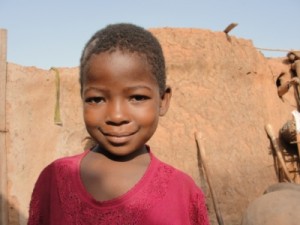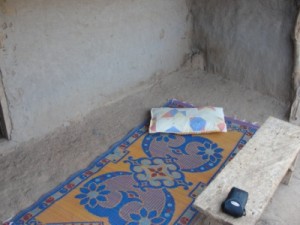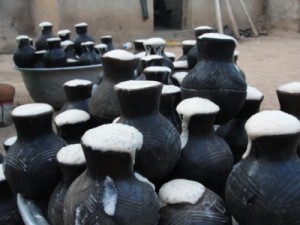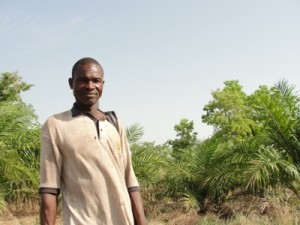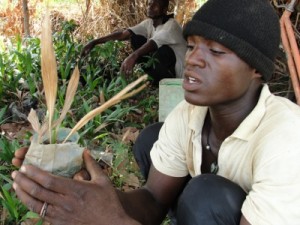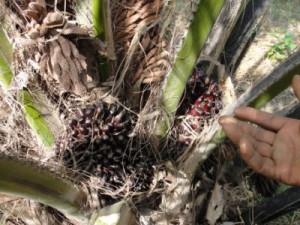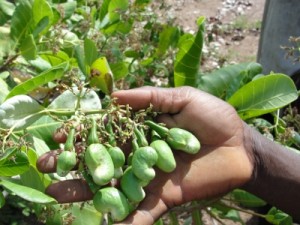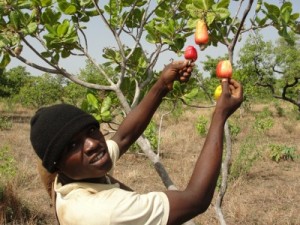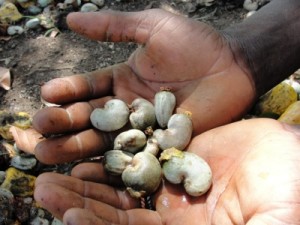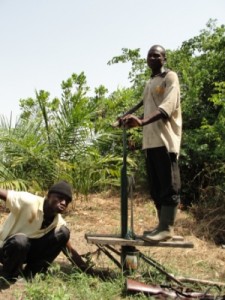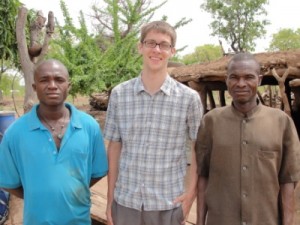What I do here
Well, at long last I’ve finally found some time to answer that question that a lot of you have probably been asking: “What the heck is Ben actually doing in Ghana?” It has been a pretty mixed bunch of activities, but I’ll try to go through them more or less as they happened.
Who I work for
First off I should explain who I work for as it’s a little bit complicated. My placement is officially with an NGO called Africa 2000 Network (A2N), which is based out of Accra in the South, and does work in every region of Ghana. It is a UN founded NGO and is also primarily funded through the UN. The director of Africa 2000 Network is Madam Adisa Lansah Yakubu (Madam Adisa) who is an absolutely amazing lady. She has been the director of the NGO since its inception in 1989 and has decades of experience in development, both in terms of field work and work within the UN system.
Although my placement is with A2N, I work much more directly with the Integrated Poverty Reduction Programme (IPRP), which is based in Tamale in the Northern Region. IPRP began as a CBO and is now a registered NGO, but basically acts as the Northern implementing field office for A2N. The director of IPRP is Mr. Tahidu, who is also an amazing man who is taught me an incredible amount about development work in the field. I am also living at his house when I am in Tamale, and so we’ve had a lot of discussions over the couple of months I’ve been here. I eventually want to write an entire blog entry on him, but it will take awhile for me to organise my thoughts on that. IPRP also has an accountant named Mohammed, a national service person (Musah) and a field officer (Latifah). National service is a program in Ghana were every graduate from post-secondary education must work for a year to promote development within the country before they find their own work. Everyone in the office is a lot of fun, and Musah especially is always good for laughs whenever we are all together.
What I’ve done
Sagnerigu Women’s Centre
I spent my first couple of weeks spending time at one of the women’s training centres that A2N runs in a community on the fringes of Tamale called Sagnerigu. While I was there, a group of Japanese from JICA (the Japanese international development department), JETRO (the Japanese external trade something or other) and a man from a Japanese company were training a group of women (and one man) to make shea butter soap to be sold on the Japanese market. There are other groups at the centre that produce the shea butter and groundnut oil that is required for the soap production itself. I didn’t exactly contribute much to this project, as I knew nothing about shea butter or soap, but I learned a lot about how IPRP and A2N operate and started to get to know everyone at the office and build some trust with my director(s) and office staff at IPRP.
ABCD training at Walewale
My next real project was a training session at Walewale, a couple of hours north of Tamale in the Northern Region. We were running a training session on an approach to development called Asset Based Community Development (ABCD) for Assemblymen and Assemblywomen in the Walewale district. These people are basically people elected by each community to represent them in the District Assembly, which is the local level of government. These representatives don’t really get any offical training on how to help their communities develop, and thus there is often a huge gap between the District Assemblies and the communities themselves.
Enter ABCD. This approach looks to remove any mention of poverty, poor, or needs from the process of community development. The idea that communities are poor and need outside help to do anything is constantly reinforced, and it is very easy for people and communities to believe that they cannot do anything for themselves. ABCD aims to help people realise what assets they already have within their communities and to empower them and give them the confidence to start using those assets to begin development within their own communities. I could write for a long time about it, but I’ll try to summarise the approach in a couple of main points.
Appreciative Inquiry
When entering and working with a community, ABCD advocates the appreciative inquiry approach. The concept is to ask questions in order for people to talk about past successes, their strengths, community member’s strengths etc, and to complete avoid questions regarding needs or problems. This leaves the community feeling good about itself and ready to take those assets and strenghts and move forwards.
Asset Mapping
Several types of participatory mapping techniques are used to map physical, natural and social assets or capital. After these assets are mapped, the community moves on to…
Leaky Bucket Economic Analysis
Here, the community looks at their community as a bucket, with outside inputs (support from the district assembly, NGOs, remittances), assets and skills within their community (inside the bucket) and leakages in the bucket which cause assets to leave the community (buying firewood, fuel, transportation costs etc.). The community the brainstorms various ways to use the assets they have to generate more income or plug the leakages in their bucket.
Action Planning
Once the previous brainstorming is finished, the communities prioritise which activities they want to undertake and start planning how they will be accomplished.
The overall concept is that the problems and needs within the community will be addressed, but from a different angle. Empowering the community and making the shift from community members as clients of NGOs or the government to community members as citizens within a society is the overall goal of the approach.
That is an extremely brief summary, but I hope it gets across the general idea of what ABCD is. Please post any questions you have about anything, I’ll be happy to clarify wherever I can.
Village stay at Nwodua
I spent a week living in a village about 45 minutes northwest of Tamale. I lived with the Assemblyman for the area and learned a lot about the successes they have had and the problems they are still facing.
The community has been working with Madam Adisa since before A2N even existed, and the results have been pretty incredible. They have gone from having zero formally educated people in their village to having a primary school, adult primary school, junior secondary school and vocational institute within the village itself.
One of the primary ways this has been able to happen is through the establishment of a tree nursery in the village. The tree nursery was initially started to provide trees for an agro forestry project (which I’ll explain more in my Kukpehi entry) and now generates income through the selling of grafted mango seedlings and other seedlings that are raised there.
Nwodua was very focused on functional education in their community, and thus have been very successful in that respect. Some of the problems they still face are in the way of income generation. Since there was such a focus on education, income generation for women and youth (outside of the nursery) was not addressed as well as it should have been.
Despite learning a lot from the people at Nwodua about their struggles and success, I left my stay feeling frustrated and less optimistic about having any impact in my field work. The community ownership and dependence problems I saw along with the lack of income generating activities (especially for the women) were deep rooted mature problems that I didn’t even have the slightest clue how to even begin addressing had I the time or the resources.
I realize that I was only there for a week, and certainly didn’t have time to have impact on a project that has been running for over a decade. I’ve thought about my time at Nwodua since then, especially in light of my continuing time at Kukpehi (see below) and I think there were a couple of reasons for my frustration.
First off, I made a lot of mistakes. Mr. Paul who I stayed with is the head of the small Catholic Church in the community, and hence there are often priests which come to stay at Nwodua to learn Dagbani before beginning their mission work. This was apparent when I arrived and was promptly asked what I would prefer to eat, when I would like to eat it, whether I needed my bath water heated etc. I was a little overwhelmed and told them that I would simply eat what they ate, when they ate it, and had no special requests or needs. This was a step in the right direction for me, but I didn’t have the confidence or experience to really shake off the special treatment. I was given my own room to sleep in, served my meals in that room and not bothered for or about anything. I spent almost all of my time with the few in the village that usually spend time with the Western visitors and did a horrible job of trying to integrate with the rest of the community. I think after the week was over I was pretty disappointed with myself, and didn’t feel that I had really gained as much out of the experience as I could have.
The second reason I was so frustrated was the fact that I was only there for a week. I was really just another short time visitor that came to Nwodua just leave without really contributing. I was talking to a group of the youth one evening about this and they definitely felt the same way. The told me that so many people from all around the world had come to visit Nwodua to learn from them but not once had anyone from Nwodua ever traveled outside of their country. Their request to me was to find someway to raise the funds to give one of them the chance to travel. It was tough to explain that I am student still trying to pay for school, while at the same time I couldn’t deny that I was there, there was money somewhere that paid for my trip, but no money to pay for theirs. Here was a community that was working so hard for its own development, and here I was, another Western coming to take away what I could without having anything to offer in return.
If I wasn’t helping I felt like I could only be hurting, especially when it comes to reinforcing stereotypes of Westerners, which are probably more like truisms in Nwodua at this point. This makes me think of an analogy used at conference this year when we were talking about the responsibilities of a Junior Fellow. The impact that we have overseas in four months will never amount to the cost of our placement, and we’ll be like runners chasing an ever advancing finish line. I felt exactly like that runner, and I know that I’ve still got a long race ahead of me.
Mr. Tahidu had the idea that I send updates about my regular life in Canada to the communities I have worked with or stayed in, and I couldn’t believe how such a simple, obvious thought didn’t occur to me in the first place. Just as everyone in Canada wants to hear about this strange, different experience I’m having in Ghana (which is just regular life here for the most part), community members here would be just as excited to hear about my everyday activities back in Canada. I’m really looking forward to these continued exchanges, and hopefully I’ll be able to start eroding some of the stereotypes that I’ve maybe helped build up.
Kukpehi
If Nwodua left me feeling confused and frustrated, Kukpehi has restored my hope and energy. Kukpehi is a fairly small village of about 450 people that is 15 kilometers due west of Tamale. Farming and animal rearing are by far the dominant economic activities, including the usual crops of maize, yam, rice, okru and soy beans. The grassy areas between houses are filled with goats, sheep, chickens and guinea fowl while the cattle graze in fields that are essentially being fertitlized for next year. There is no electricity save two small solar panels which provide lights for the mosque (and adult literacy classes during the evenings of the dry season) and also charge batteries. The community’s water source is a small dam (basically a hole dug out of the earth in a low lying area to catch groundwater run off) about a kilometer from the village houses.
There has been a lack of rains up to this point this year, so the water is getting muddier by the day. I sometimes wonder about bathing when I can’t see the bottom of the bucket. It’s then that I think of the three year old in my house smiling at me drinking out of an old metal container and I just feel guilty about the bags of ‘pure water’ Mr. Tahidu insisted I bring with me. The crops are underdeveloped and the maize stalks bow to the harsh sun instead of standing tall and healthy. Many of the fields have been plowed once and are now growing over with weeds again as the farmers wait for the rains to come before they sow.
It is here that I have fallen in love with the people, the quiet and my spot on the hard concrete floor of my host father’s room. The village has an energy and drive about it that is difficult to explain, but so easy to be a part of. It feels so natural when I’m there, but as I sit here writing these words I struggle to understand how it is even possible. I’ve been lucky enough to spend my last two workweeks living in Kukpehi working with the people on a new tree nursery/agro forestry project that is similar to the one in Nwodua.
The concept behind the project is to target the environment as an asset that needs to be both taken care of and even developed to help the livelihoods of the people. The idea is for one community to start a tree nursery in order to supply tree seedlings for itself and several of the surrounding communities. These seedlings are used in agro forestry, which is simply the intercropping of trees in farmer’s fields. The benefits of this practice are many, starting with its positive effect on the soil degradation that continues to reduce crop yields in the area. Firewood is also becoming increasing scarce as more and more trees are cut to provide fuel for cooking. Fast-growing, dry trees are a large focus of the project to provide a source of firewood to curb the cutting of other economic trees in the area. Agro forestry also helps prevent and fight bush fires, as farmers have a vested interest in their trees, will not start bush fires, and also community fire fighting groups. IPRP also plays the role of educating the communities about the benefits of agro forestry and its importance in sustaining an already vulnerable environment.
After the agro forestry of the project has been running for some time and trees have been successfully transplanted into farmer’s fields and woodlots, the project will make a transition into a sustainable income generating activity. In addition to the seedlings for agro forestry, economic seedlings such as mangoes will also be raised and sold. The community will be taught how to graft local mangoes with mangoes from Burkina Faso, in order to have a more drought resistant mango which bares large fruits (like the kind usually seen in Canada) as opposed to the smaller, yellow mangoes that dominate here.
Since I have been in Kukpehi I have basically been acting as a field officer from IPRP. I have been doing some busy work clearing the nursery, collecting new seedlings that are sprouting at this time of year, and planting some new beds of seedlings. The new beds have germinated already, and are doing well! Everyone’s pretty excited about what is happening and community participation is high, especially in the children, who fetch water every day after school.
Kukpehi is off to a great start, but where I think my real role is in the project is trying to keep things sustainable with a high level of community involvement. I want to avoid the current situation at Nwodua, where the village champions there are beginning to feel like the community is dependent on them, which to some extent they may be. Alhasson could easily fall into a role where he is responsible for too much in the community. He recognizes this, and we have started to find ways in order to make sure the nursery never becomes dependent on him.
In order to address this issue, there will be a general meeting while I’m gone to decide on a schedule for small groups to work in the nursery. At the moment, everybody comes out everyday to work in the nursery. This is not a problem now because the rains are extremely late this year, and thus the men are not out in the fields farming. I am not sure how the arrival of the rains (however late they may be) and the increase in farming activity will affect the community participation. We decided that small groups and assigned days of work would be the best way to ensure that the proper watering and care of the nursery happens on a day to day basis.
In order to sort out these details, Kukpehi is having a general meeting while I’m away to create and organize the small groups, and also to draft a two month plan for the nursery. Concrete planning and goal setting is something that I feel is important for communities to begin doing. It allows them to measure their progress, feel good about their accomplishments and it keeps the project from becoming stale. This type of planning is an area where I believe IPRP has a ‘learning opportunity’, and I’m hoping that implementing it in a community where IPRP will carry on my work after I’m gone will encourage IPRP to continue using it in other communities. I’m beginning to wonder if my plans for impact and behaviour change in my last few weeks aren’t a bit too ambitious, but hopefully between IPRP and the community a practice of regular planning will continue.
I’m really looking forward to the last week or so that I’ll spend in Kukpehi. It looks like I’ll get to do some farming (I’ve just learned that it rained there a couple of times this weekend, so everyone should be back out in the fields when I return!), I want to spend some more time with the women, and continue work in the nursery. I also can’t wait to make a fool of myself again at another one of the local dances.
The last night I was there they had what is called a Simpah (not sure about the spelling on that one) dance, which was just incredible. When we showed up, things were already under way and the atmosphere and energy was beyond anything else I’ve ever experienced. Four people play drums, with one playing taller bongo-type drums, one playing a simple rhythm stick on the side of the drums, one playing something closer to a djimbe, and the fourth playing a kick drum and a small, clearly locally made cymbal. The beat is intense. The drums are amazing, but the cymbal is what gives everything the energy. It doesn’t ring much and has a dull metallic clang, making it feel like machinery that is driving relentlessly forward. My description does nothing close to justice, you’ll just have to come and see it for yourself some time.
After watching for a while, and unsuccessfully having a try at the drums it was finally my turn to learn to dance. Everyone stopped and made a circle around me and one of the other youth. As the music started I tried to follow his footsteps and hand movements and just general motion. This led to regular eruptions of laughter whenever I did something horribly wrong, and shouts of encouragement when I managed to get a few steps right. After a few minutes of trying to concentrate through my own smiles and laughter, the music finally stopped and a cheer went up. After a few handshakes, and a couple botched attempts at answering some of the people in Dagbani, Alhasson and I headed home to bed. It was after midnight, but as we made the journey back home the beat started again and I couldn’t shake the image of everyone dancing together under the moonlight. I settled into bed and eventually fell asleep with the sound of bass drum still driving forward still penetrating the night.
Despite what I feel has been a much better stay than Nwodua, I can’t help but feel that I would need to spend a lot more time at Kukpehi to really get to understand who they are and for them to understand me. I think that mutual understanding is key to successful development when it comes to volunteers and workers from foreign countries, but I’ll write a lot more about that later. I’ve had several offers of land for farming and been asked when we should start building my house, which in some fantasy world in my head I could accept. I feel like I still have so much to learn, and that things are just beginning, instead of coming to a close. My biggest wish is definitely to learn more Dagbani so I can talk directly to the women and children of the village, because right now there’s a huge demographic of people that I have so many questions for and still have so much to learn from.
I had planned to post another entry on general learnings and the like but it looks like this one took all day and you’ll have to wait!





